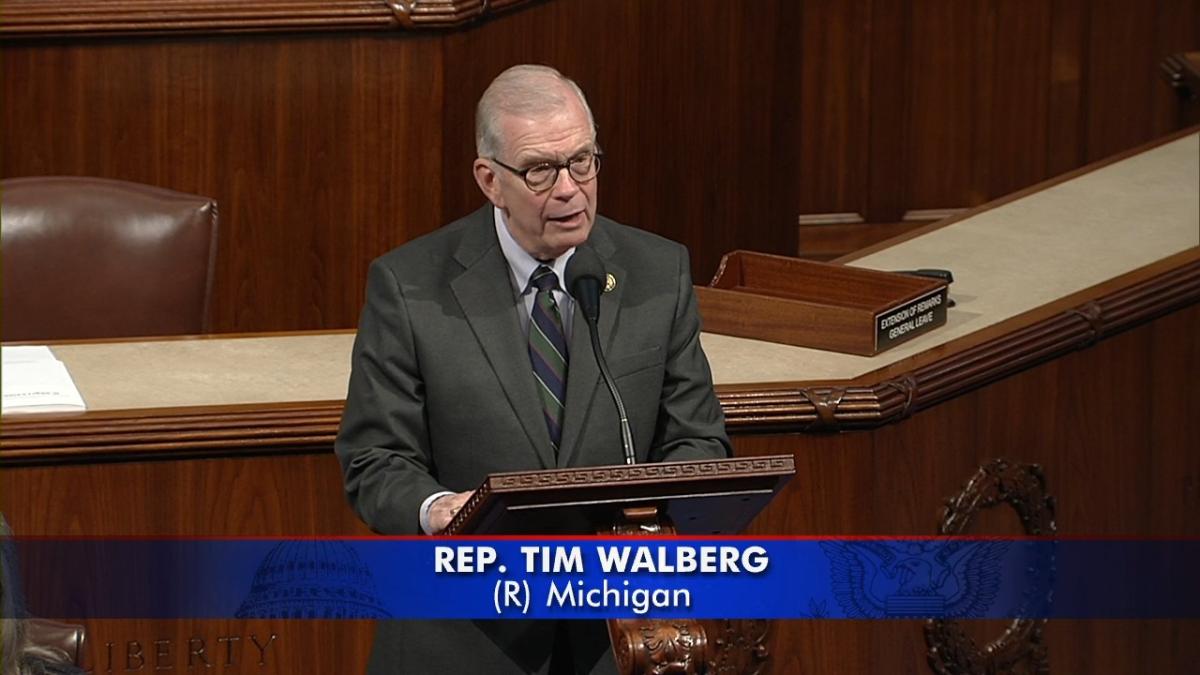Michigan Farm News: USDA announces ‘sweeping five-pronged plan’ to combat New World Screwworm spread

Agriculture Secretary Brooke Rollins announced USDA’s latest plans to build and operate an $8.5 million domestic New World Screwworm (NWS) sterile fly dispersal facility at the Moore Air Base, located just 20 miles from the Mexico border in Edinburg, Texas.
The former Air Force base, closed in 1963 and transferred to USDA, played a key role in the previous NWS eradication effort in the 1960s.
During a press conference Wednesday, Rollins said the dispersal facility will be completed by the end of 2025, allowing USDA to aerially disperse sterile male flies at the border and northern Mexico to mate with wild female flies, resulting in no offspring.
The technique, referred to as Sterile Insect Technique, is the only option available to eradicate NWS.
“The United States has defeated NWS before and we will do it again,” Rollins said. “We do not take lightly the threat NWS poses to our livestock industry, our economy, and our food supply chain.”
According to Rollins, USDA will use all resources at its disposal to “push back NWS,” saying the announcement of a domestic strategy to bolster border defenses was just the beginning of a sweeping five-pronged plan to enhance NWS eradication efforts.
According to the NWS plan, USDA is “exploring all options” to eradicate NWS, including potential expenditures in new technologies and new science.
Those options also include “possible plans to move forward with the design process of a domestic sterile fly production facility to complement the new dispersal facility at Moore Air Base, which has also been identified as the proposed location.”
Michigan Farm Bureau Livestock Specialist Pierce Bennett said domestic sterile fly production is essential to mitigate the NWS threat to U.S. livestock producers, stressing the urgency for expanded production capacity.
"MFB is thankful for Secretary Rollins' and USDA's continued efforts to mitigate the NWS threat,” said Bennett, urging quick completion of exploration to actual construction. “MFB will continue engaging with our congressional and administration partners on behalf of Michigan livestock producers to expedite this process."
The facility could boost domestic sterile fly production by up to 300 million flies per week to complement current production in Panama, the only production facility in North America currently.
Operated through the Panama-United States Commission for the Eradication and Prevention of Screwworm, the facility produces and sterilizes 100 million sterile flies each week which are then released in NWS-affected regions.
Rollins had previously announced on May 29 that USDA would be investing $21 million in an 18-month renovation of an existing fruit fly production facility in Mexico to produce an additional 100 million sterile NWS flies weekly.
But as the spread of NWS continues marching north to within 500 miles of the Mexico-U.S. border, concerns are growing that additional male sterile fly production capacity is desperately needed — a concept supported by members of Congress.
In a letter to Rollins on Tuesday, House Ag Committee Chairman Glenn Thompson, and 79 other House members, including Michigan Rep. Tim Walberg, urged construction of a new sterile fly production facility in the U.S., targeting weekly production of 400 to 500 million sterile flies for heightened NWS eradication efforts.
“An NWS sterile fly facility in the United States will be critical to ensuring the pest is pushed back below the longstanding biological barrier in Panama,” the congressional letter stated, noting current estimates for a domestic NWS sterile fly facility would cost $300 million with additional operating costs expected.
The congressional members pledged to support necessary funding for construction and operating costs once completed, urging Rollins to use USDA authority provided through the Animal Health Protection Act to “transfer funds as necessary for the arrest, control, eradication, or prevention of the spread of a pest or disease of livestock.”
“We recognize the operational costs of a domestic facility would extend beyond the initial startup, and Congress stands ready to assist in long-term operational funding,” added congressional members who suggested the costs would pale in comparison to the economic devastation to U.S. livestock producers if NWS crossed the border.
“When looking solely at the historical impact of NWS in Texas, USDA’s Animal and Plant Health Inspection Service (APHIS) estimates that a contemporary outbreak would cost producers $732 million per year and the Texas economy a loss of $1.8 billion.
“Extrapolating those results to the states within the historic range of NWS pre-eradication, a contemporary outbreak of NWS could cost producers $4.3 billion per year and cause a total economic loss of more than $10.6 billion,” the letter continued.
Following the USDA announcement, National Cattlemen’s Beef Association (NCBA) President Buck Wehrbein, a Nebraska cattleman, also voiced support for expanded domestic NWS sterile fly production, calling it “the only way to protect the American cattle herd.”
“To accomplish that, we need a sterile fly production facility of our own in the United States,” he said. “NCBA, and state affiliate partners, including the Texas and Southwestern Cattle Raisers Association and Texas Cattle Feeders Association, have been pushing for a facility like this since the start of the year.”
Walberg applauded the announcement to construct the domestic sterile fly dispersal facility, saying NWS poses a significant threat to the health of U.S. livestock.
“I am hopeful that this facility will help support farmers and ranchers in Michigan and across the country so they can continue their tireless work to feed America,” Walberg added.
MFB Associate National Legislative Counsel Jacob Smith commended Walberg's quick action on this rapidly developing issue, adding, “NWS has the potential to do major economic damage if it reaches Michigan and this federal dispersal facility is a great first step in protecting Michigan agriculture.”